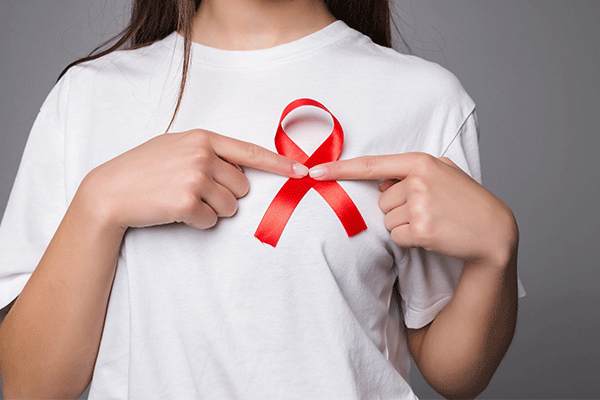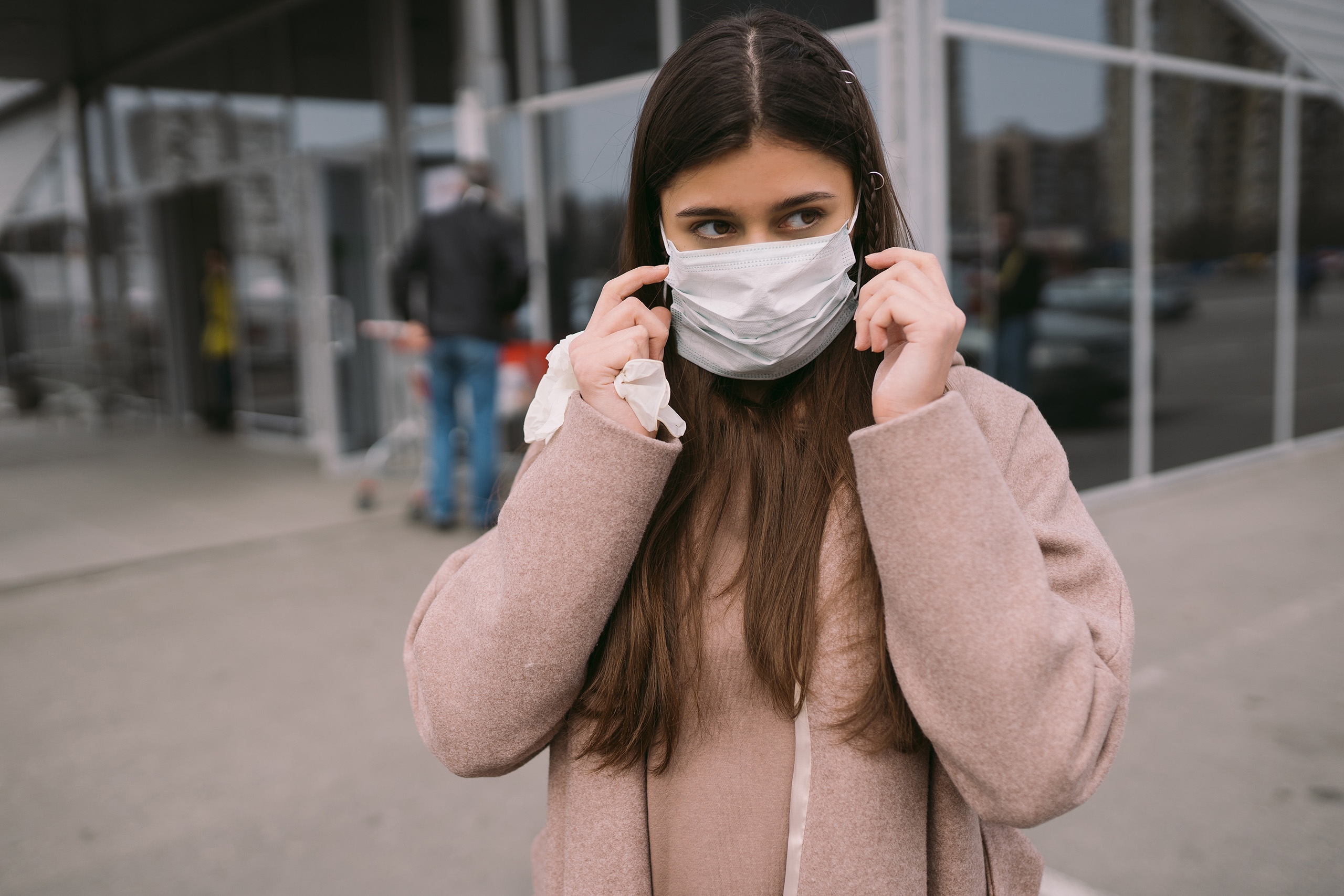
HEALTH ADVISORY: BREAST CANCER
HEALTH ADVISORY: BREAST CANCER
(Author: Dr Amit Kumar Gupta, MBBS, MD, MBA)
Breast cancer is one of the most common cancers affecting the women worldwide. Adequate awareness about breast cancer and its preventive measures can help us take necessary steps for avoiding this disease and seeking timely, appropriate help to minimize harms in case of an actual disease.
In India, breast cancer accounts for nearly one-fourth to one-third of all cancers among women. Almost half of the breast cancer victims are below the age of 50 years, and more than half of the patients present in late stages with poor outcome. Only 60 out of 100 women diagnosed with breast cancer are likely to survive for more than 5 years. The most common reason for such a rising prevalence of breast cancer and its toll on women wellness in this country is a lack of awareness about this cancer and the screening for it. We can reduce the risk of breast cancer and its adverse impacts by having adequate prior knowledge about this disease and taking necessary steps for its prevention, screening, early diagnosis, and prompt treatment.
Structurally, the human female breasts are composed of fat tissue, lobules of milk glands and their ducts that open into the nipple. During adolescence, they start growing under the influence of body hormones (especially the female sex hormones) and attain their adult size and function. During pregnancy and at delivery, further changes occur in the breasts so that mothers can breastfeed their babies with the most natural meal – the mother’s milk.
Breast cancer can occur in a woman due to multiple reasons such as:
- Genetic (hereditary) factors: The risk of breast cancer is higher in those women who have a history of this cancer in their mothers, sisters, daughters, or first-degree cousin sisters.
- Hormonal imbalance: This is the most common reason for breast cancer. It is largely a problem of estrogen hormones which also affect menstrual periods and motherhood (fertility) in women. Breast cancer has been reported more commonly in spinsters, never-pregnant middle-aged women, and those having their first full term pregnancy at an advanced age.
- Environmental influences: These include radiation to chest, radiotherapy for other cancers etc.
- Bad lifestyle: Smoking, alcohol intake, obesity, sedentary lifestyle, inadequate physical exercise, and nonbreastfeeding (or early weaning) increase the risk of breast cancer in women. Women can reduce the risk of breast cancer by avoiding such high-risk behaviours and adhering to a healthy lifestyle.
Combination of one or more of these risk factors ultimately causes unregulated growth of cells in the breast tissue resulting in abnormalities of structure and function of one or both the breasts. The cancer in one breast can spread locally in and around that breast, or to the other breast, or to various other organs in the body thereby leading to further symptoms and complications accordingly
Women with breast cancer may not have any symptom at all in its early stage. Later they may have some subtle manifestations; and recognizing them is important for early diagnosis and prompt action.
Common symptoms and signs of breast cancer are:
- Visible or palpable lump in one of both the breasts
- Dimpled skin over the breast
- Colour changes in the skin overlying the breast
- Texture changes in the skin overlying the breast
- Inward bending (inversion) of the nipple
- Abnormal discharge from the nipple
- Lump in the armpit
If you have any of these symptoms and signs, don’t ignore them. Seek help from your doctor or gynaecologist. Your doctor will take a detailed medical history, perform a clinical examination including breast examination, and may advise certain tests such as mammography, needle aspiration/biopsy etc. if the initial work-up suggests breast cancer, further tests may be required for know the extent/stage of the cancer and the plausible options for its treatment.
Treatment of breast cancer depends not only upon its extent, severity (stage) and clinical type but also on the concerned patient’s age and overall health status. Keeping all these factors in mind, the plan of treatment is finalized after a detailed discussion with the patient and considering her preferences. It may include surgery, hormonal therapy, chemotherapy, radiotherapy, or simple supportive/palliative treatment (in case of a very advanced stage disease). Modern medical advances such as breast reconstruction surgery and artificial breast implants have added to cosmetic rehabilitation after surgical removal of breast. So, timely diagnosis of breast cancer and its proper treatment can help such patients live a good, cancer-free life subsequently.
However, it is said that prevention is better than cure and it holds true for breast cancer also. For this purpose, always remember the following:
- Healthy lifestyle: Avoid smoking and alcohol intake. Maintain a healthy weight. Take healthy, balanced diet. Exercise regularly (it helps even if you are nor overweight). Take sound and adequate sleep for at least 6-8 hours daily.
- Self-breast examination: This is a very important screening method used for detecting early breast cancer in women. In this method, the woman herself looks at her breasts in the mirror and feels each breast for possible lumps, distortions or swelling. The examination in done in different postures and every woman should know how to do it.
- Breastfeeding: Give you baby his/her right to the mother’s milk. The longer you breastfeed, the greater the protective effect against breast cancer.
- Periodic health check: Know your health status through regular (at least annual) health check. Never skip your routine health check due to reasons of busy schedule or other excuses. If you have a family history of breast cancer, tell you doctor about it and have discussion for your own health benefits. Follow your doctor’s advice for any needful test (such as mammography).
- Gynaec consultation: An expert’s advice is always good, especially for health education and counselling of adolescent girls and adult women. If you have any breast-related or other gynaecological problem or concern, don’t hesitate in seeking help from your gynaecologist who will examine you and can give you proper advice and treatment, if required.
Avoid unnecessary drugs and radiation: Never do self-medication. Always take drugs as prescribed by your doctor. To manage symptoms of menopause, some women may need hormonal therapy which should be taken only after consulting your gynaecologist. Similarly, avoid any unnecessary radiation (including any unnecessary chest x-ray not advised by your doctor).
(The author Dr Amit Kumar Gupta is a medical specialist cum public health expert working as Senior Consultant – Medical Services & Quality at HCL Healthcare. He can be reached out at Amit_Gupta@hcl.com)





